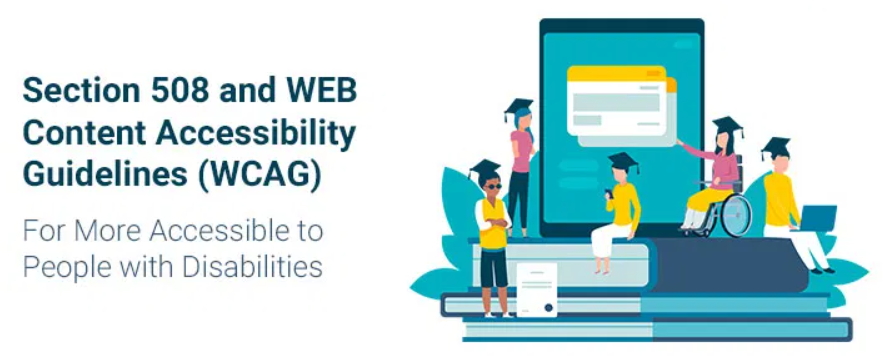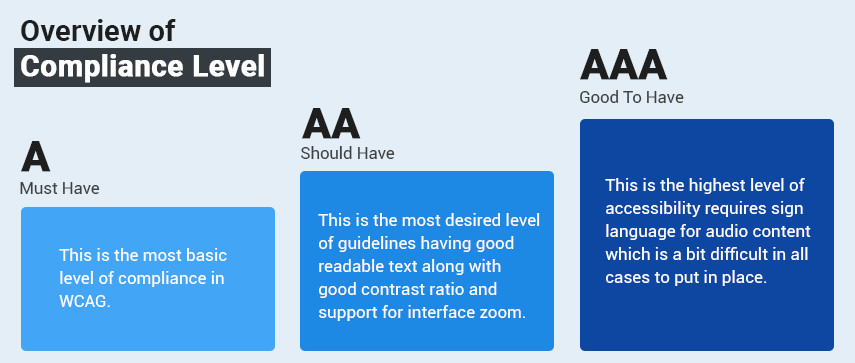
One of the goals of knowledge management (KM) is to increase collaboration and facilitate knowledge creation and sharing. Section 508 and WCAG play an important role in making technology accessible to people with disabilities like deaf or hearing impaired, vision impaired, etc. To cater to the needs of people with disabilities, Section 508 and the Web Content Accessibility Guidelines (WCAG) will lend a helping hand in accessing web-based knowledge content.

WCAG (Web Content Accessibility Guidelines) are the guidelines with technical standards, to make web content handy in reaching out to disabled people. It has been conceptualized by W3C (World Wide Web Consortium) which is an international group supported by its own members and the public, in developing and altering web standards.
The WCAG is categorized into three levels that resemble one another based on accessibility standards. The levels are A, AA, and AAA. Level A denotes the lowest accessible standards pertaining to web content similar to the rules in Section 508. In AA and AAA, the guidelines are more scrupulous which paves the way for further accessibility. While referring to level AA guidelines, includes A and AA standards. Similarly, AAA includes guidelines for all the levels – A, AA, and AAA.

ADA and Section 508 cover WCAG guidelines that apply to the USA only.
ADA standards must be followed by all commercial and public entities that have "places of public accommodation” which includes the internet. ADA compliance is starting a huge issue in the USA. It is recommended to use the WCAG 2.0 level AA guidelines as a guide on how to become accessible.
Section 508 is an amendment to the Rehabilitation Act of 1973, which provides accessibility to disabled people in the electronic and information technology field through the U.S. Federal system. U.S. government websites and applications and those developed using US Federal funds must comply with Section 508.
As Section 508 comes under U.S law, this law (the Rehabilitation Act of 1973) is applicable in the United States and its federal agency system. WCAG differs from Section 508 as it is not a law but guidelines that are standardized internationally in making the web-based content reachable to people afflicted with disabilities. In a nutshell, WCAG is acceptable internationally pertaining to web-based content and its practices. In contrast, Section 508 adheres mainly to the U.S based entities relating to electronic and information technology.
The fine points that include in Section 508 and WCAG are listed below.
For a detailed review of how PHPKB knowledge management software conforms with WCAG 2.1 AA success criteria, please refer to our Voluntary Product Assessment Template (VPAT) document.
In conclusion, any organization, whether directly or indirectly funded by the government, should be compliant with Section 508 for creating their knowledge base content. Other countries follow WCAG norms for e-learning courses.
Due to some limitations like extra cost and effort, non-government organizations are prevented from making accessibility a priority. Instead, they opt for having one-to-one sessions with the concerned individual.
Article ID: 221
Created: June 10, 2020
Last Updated: March 30, 2023
Author: Ajay Chadha [support@phpkb.com]
Online URL: https://www.phpkb.com/kb/article/accessibility-for-knowledge-management-section-508-and-wcag-221.html